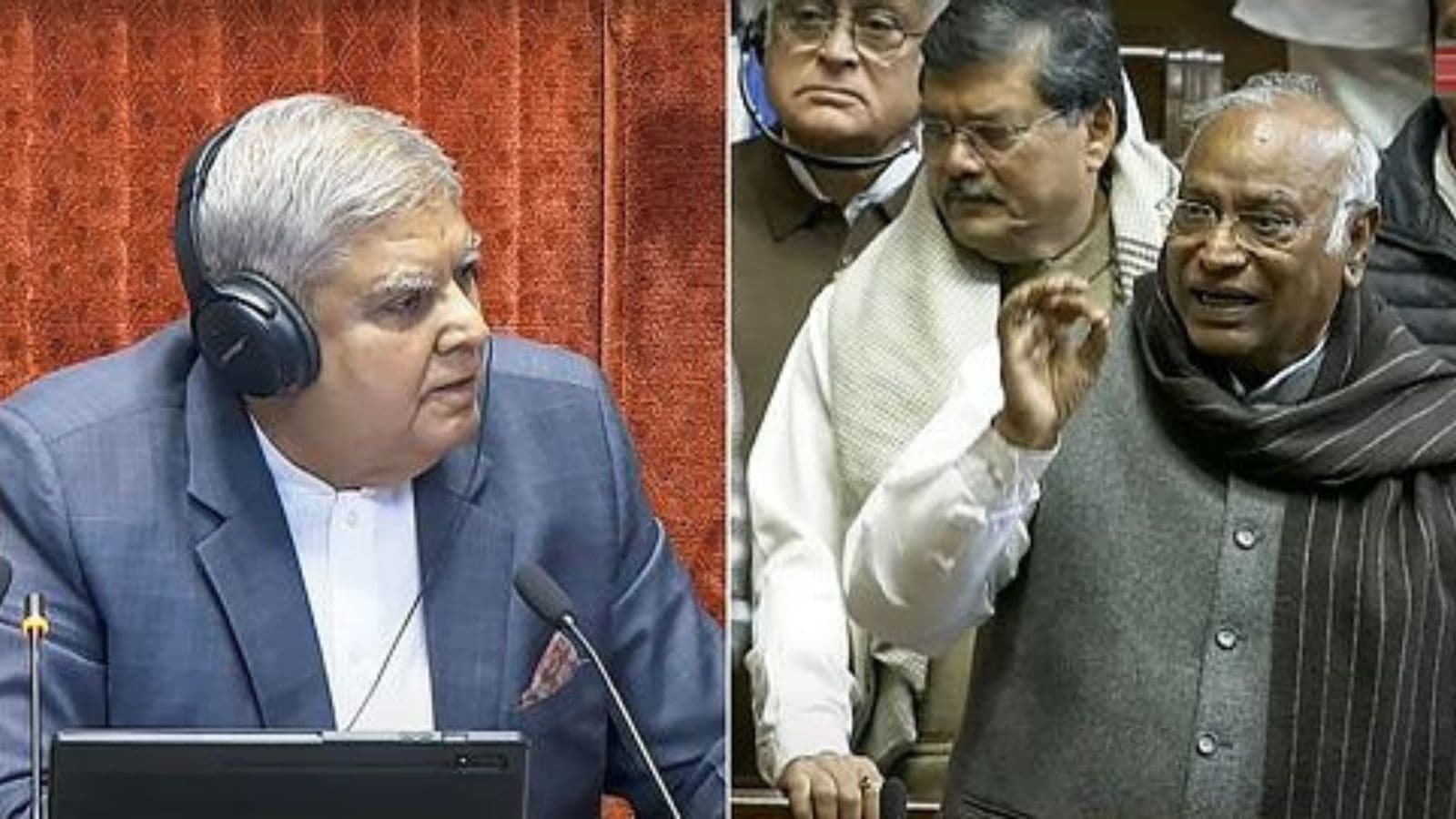 |
|
The ongoing conflict between the Opposition and the Rajya Sabha Chairman, Jagdeep Dhankhar, has escalated significantly, with Leader of the Opposition Mallikarjun Kharge leveling serious accusations of power abuse. Kharge's claims center on the alleged systematic suppression of the Opposition's voice within the Rajya Sabha, accusing Dhankhar of employing various tactics to silence dissenting viewpoints. The core of Kharge's argument rests on the frequent and allegedly arbitrary expunging of critical portions of Opposition members' speeches, a practice he describes as 'mala fide' and intended to undermine their ability to effectively represent their constituents' concerns. This, he asserts, represents a blatant disregard for the fundamental principles of parliamentary democracy, where open debate and the expression of diverse opinions are considered essential. The repeated instances of expungement, Kharge argues, are not isolated incidents but rather part of a deliberate strategy to stifle opposition voices and create an uneven playing field within the Rajya Sabha.
Beyond the expunging of speeches, Kharge's critique extends to Dhankhar's conduct during sessions. He alleges that the Chairman engages in 'persistent heckling' of Opposition members, interrupting their speeches and disrupting the flow of debate. This, Kharge contends, is not merely disruptive but also a form of intimidation designed to discourage critical commentary on government policies. Furthermore, Kharge highlights what he considers an 'unwarranted insistence on authentication,' a procedural tactic that allegedly serves to delay or prevent Opposition members from presenting their arguments effectively. By combining these actions—expunging, heckling, and procedural delays—Kharge paints a picture of a biased chair working actively against the Opposition's ability to fulfill its oversight role in the legislative process. This systematic effort to suppress dissenting voices, he argues, is a grave threat to the integrity of the Rajya Sabha and the broader democratic principles upon which it is founded.
The intensity of Kharge's accusations is underscored by the Opposition's decision to submit a no-confidence motion against Dhankhar. This dramatic step reflects the seriousness with which the Opposition views the Chairman's actions and underscores their belief that his conduct is incompatible with the impartial and unbiased leadership expected from the presiding officer of the Upper House. The no-confidence motion signifies a profound challenge to Dhankhar's authority and raises fundamental questions about the fairness and impartiality of the Rajya Sabha's proceedings. The success or failure of this motion will have significant implications for the future of parliamentary debates and the relationship between the ruling party and the Opposition within the Rajya Sabha. The outcome will also serve as a precedent for future instances of perceived bias or procedural abuse within the legislative process. This situation highlights the crucial role of an impartial chair in ensuring a robust and functioning parliamentary system.
Kharge's criticism extends beyond the immediate actions of Dhankhar, touching upon broader concerns about the state of parliamentary democracy in India. He explicitly links the alleged actions of the Chairman to a wider pattern of what he terms 'trampling of democracy' and 'subjugation of truth.' By framing his criticisms within this larger context, Kharge seeks to elevate the debate beyond a mere procedural dispute to a fundamental question about the health of India's democratic institutions. This broader framing invites a critical examination not only of Dhankhar's conduct but also of the underlying political dynamics that may contribute to such conflicts. The accusations have sparked intense debate, highlighting the critical need for transparency and accountability in India's legislative processes. The future trajectory of this conflict will undoubtedly shape the political landscape and the functioning of the Rajya Sabha for years to come.
The use of social media platforms like X by Kharge to amplify his accusations underscores the evolving nature of political communication in India. His posts on X serve as a direct appeal to public opinion, bypassing traditional media channels and allowing him to reach a broader audience. The use of social media in this context also underscores the increasingly important role of public opinion in shaping the political narrative. The debate surrounding Dhankhar's conduct is not confined to the walls of the Rajya Sabha but has spilled over into the public sphere, indicating the significant stakes involved in this political battle. The outcome will likely influence public perception of both the Rajya Sabha and the political parties involved, adding another layer of complexity to this already highly charged political conflict.
